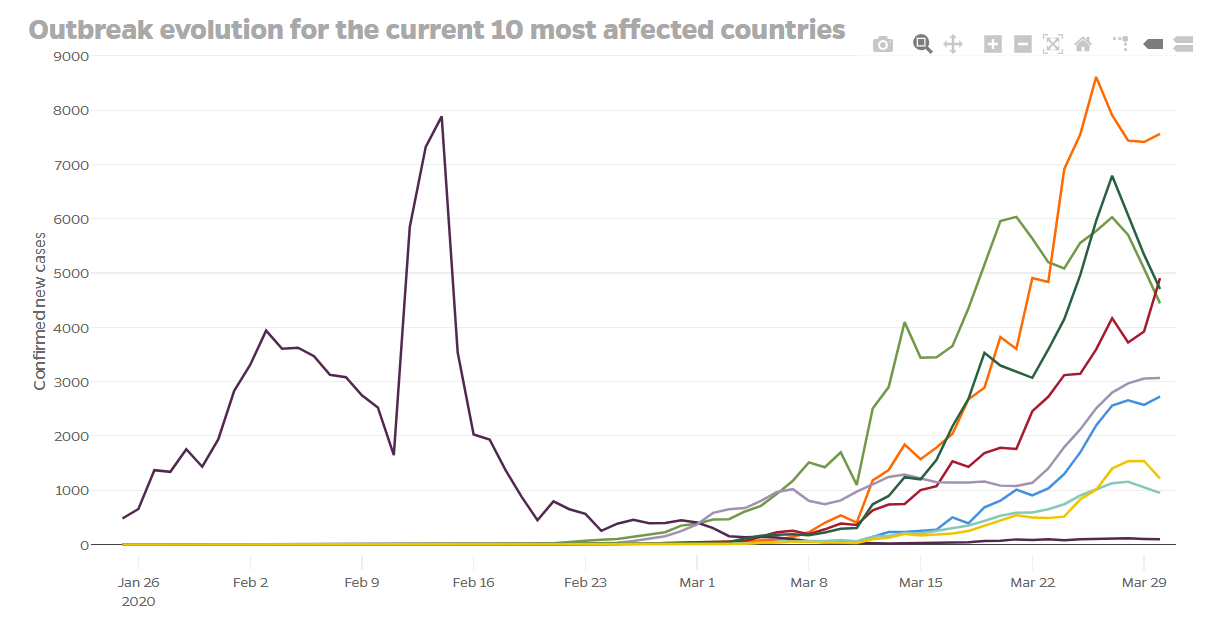
1. SPOTLIGHT: MCDA, a decision process for everyone. ‘Multiple criteria decision analysis’ is a crummy name for a great concept (aren’t all big decisions analyzed using multiple criteria?). MCDA means assessing alternatives while simultaneously considering several objectives. It’s a useful way to look at difficult choices in healthcare, oil production, or real estate. But oftentimes, results of these analyses aren’t communicated clearly, limiting their usefulness.
Fundamentally, MCDA means listing options, defining decision criteria, weighting those criteria, and then scoring each option. Some experts build complex economic models, but anyone can apply MCDA in effective, less rigorous ways.
You know those checklists at the end of every HouseHunters episode where people weigh location and size against budget? That’s essentially it: Making important decisions, applying judgment, and juggling multiple goals (raise the kids in the city or the burbs?) – and even though they start out by ranking priorities, once buyers see their actual options, deciding on a house becomes substantially more complex.


As shown in the diagram (source: ISPOR), the analysis hinges on assigning relative weights to individual decision criteria. While this brings rationality and transparency to complex decisions, it also invites passionate discussions. Some might expect these techniques to remove human judgment from the process, but MCDA leaves it front and center.
Pros and cons. Let’s not kid ourselves: You have to optimize on something. MCDA is both beautiful and terrifying because it forces us to identify tradeoffs: Quality, short-term benefits, long-term results? Uncertain outcomes only complicate things futher.
This method is a good way to bring interdisciplinary groups into a conversation. One of the downsides is that, upon seeing elaborate projections and models, people can become over-confident in the numbers. Uncertainty is never fully recognized or quantified. (Recall the Rumsfeldian unknown unknown.) Sensitivity analysis is essential, to illustrate which predicted outcomes are strongly influenced by small adjustments.
MCDA is gaining traction in healthcare. The International Society For Pharmacoeconomics and Outcomes Research has developed new MCDA guidance, available in the latest issue of Value for Health (paywall). To put it mildly, it’s difficult to balance saving lives with saving money. To be sure, healthcare decision makers have always weighed medical, social, and economic factors: MCDA helps stakeholders bring concrete choices and transparency to the process of evaluating outcomes research – where controversy is always a possibility.
Resources to learn more. If you want to try MCDA, pick up one of the classic texts, such as Smart Choices: A Practical Guide to Making Better Decisions. Additionally, ISPOR’s members offer useful insights into the pluses and minuses of this methodology – see, for example, Does the Future Belong to MCDA? The level of discourse over this guidance illustrates how challenging healthcare decisions have become.
2. C-Suite judgment must blend with analytics. Paul Blase of PriceWaterhouseCoopers hits the nail on the head, describing how a single analytics department can’t be expected to capture the whole story of an enterprise. He explains better ways to involve both the C-Suite and the quants in crucial decision-making.
3. The Man with the Golden Gut. Netflix CEO Reed Hastings explains how and when intuition is more valuable than big data. Algorithms can make only some of the decisions.
4. Embedding analytics culture. How do you compare to the Red Sox? Since Moneyball, clubs have changed dramatically. Is it possible baseball organizations have embedded analytics processes more successfully than other business enterprises?
Posted by Tracy Allison Altman on 28-Dec-2016.








